

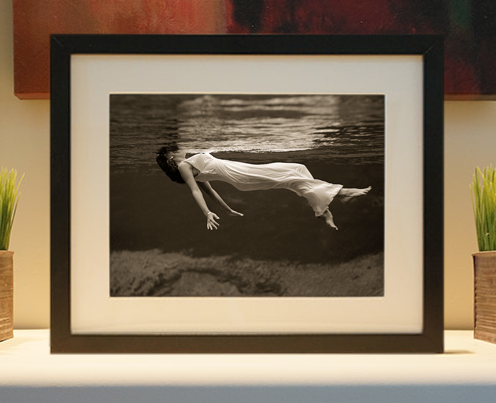
Framed or unframed, desk size to sofa size, printed by us in Arizona and Alabama since 2007. Explore now.
Shorpy is funded by you. Patreon contributors get an ad-free experience.
Learn more.

- Freeze Frame
- Texas Flyer wanted
- Just a Year Too Soon
- WWII -- Replacing men with women at the railroad crossing.
- Yes, Icing
- You kids drive me nuts!
- NOT An Easy Job
- I wonder
- Just add window boxes
- Icing Platform?
- Indiana Harbor Belt abides
- Freezing haze
- Corrections (for those who care)
- C&NW at Nelson
- Fallen Flags
- A dangerous job made worse
- Water Stop
- Passenger trains have right of way over freights?
- Coal
- Never ceases to amaze me.
- Still chuggin' (in model form)
- Great shot
- Westerly Breeze
- For the men, a trapeze
- Tickled
- Sense of loneliness ...
- 2 cents
- Charm City
- What an Outrage
- Brighton Park
Print Emporium
Attention Shoppers: 1920
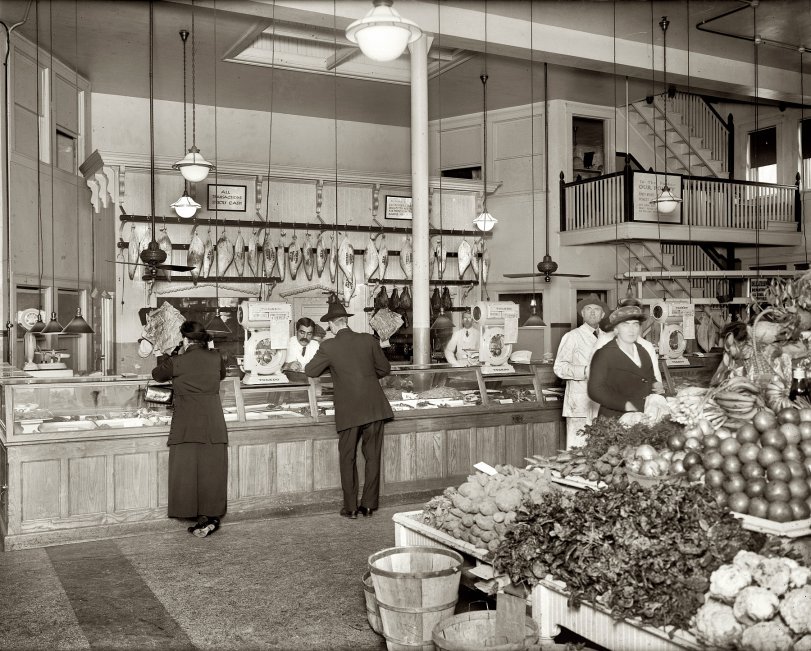
More of the Old Dutch Market in Washington circa 1920. View full size. National Photo Company Collection glass negative.
Bananas
These 1920 bananas were the Gros Michel cultivar, which became commercially unviable due to disease in the '50s. They were supplanted by the Cavendish, still available today. Gros Michel was a sturdy banana, as in those old photos of bananas in nets being hoisted off ships; Cavendish has to be boxed. And from what I've read is superior in flavor to today's bananas.
Root vegetables, cauliflower, spinach, and grapefruit make me think this photo was taken in late winter or early spring.
Opaque Goggles
I notice the butcher standing behind the scale has what looks like opaque flying goggles but maybe he just came out of the deep freeze with a new supply of hanging hams. My grandma used to take me to a Russian meat market in the 40's where they sold only meat and the butchers were equally busy and dressed in blood-stained white clothing just like these. There was lots of sawdust on the wooden floors, possibly to soak up blood. The produce here may have inspired the song "Yes, we have no bananas." I love the way the waiting woman's foot is wrapped around her other foot. Nice picture.
[They're regular eyeglasses. And I'll bet you a dollar that aviator goggles aren't "opaque." - Dave]

Toledo scales
"Honest weight - no springs." Some phrases just stay embedded in the memory.
Strictly cash
"Strictly Cash" in these pre-credit card days meant customers could not charge their purchases, a practice larger chain stores could afford to maintain. Neighborhood independents, like my father's De Luxe Groceteria, had to carry their own accounts to stay in business; customers expected it, and abused it. The resulting accumulated floating debt, along with the deterioration of the inner cities as middle-class families fled to the suburbs after WWII, was the reason my father finally had to give up his business in 1950. By then, of course, our own family had fled nine years earlier across the Golden Gate Bridge to Marin County, where the local groceries he worked for, like the Rainbow Market, continued to offer charge accounts, as well as delivery service, well into the 60s and even 70s before they finally succumbed to the pressure from the big chains.
Staircase
I'm totally fascinated by that stairway with the little office on the 2nd floor above the other little office. I bet those painted stairs were squeaky, just like the ones going up to my grandparents' 2nd floor. Or maybe that's the 1st and a half floor? And those ceiling fans on the long extension rods. I bet it was a real crowd pleaser when somebody bumped one of those hanging lights into a spinning fan. (Although the perspective might make them appear closer than they really were, if you follow the wires and rods up to the ceiling.)
Wall sign
"All transactions strictly cash". I guess they don't take Visa. Or ask "Paper or plastic?" Looking at the vegetables, I bet much was organic and local and that wasn't considered special, it was just how people ate.
[The tomatoes, according to their newspaper ads, were from Florida. Some of the other Dutch Market ads tout California cauliflower and lettuce, shipped packed in ice. - Dave]
Keeping it clean...
"Customers are requested not to ask permission to handle meat."





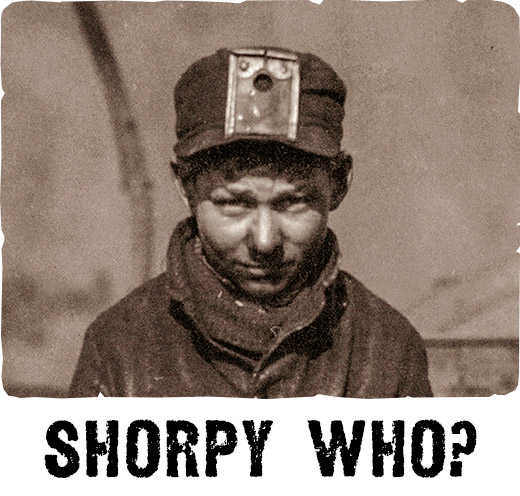
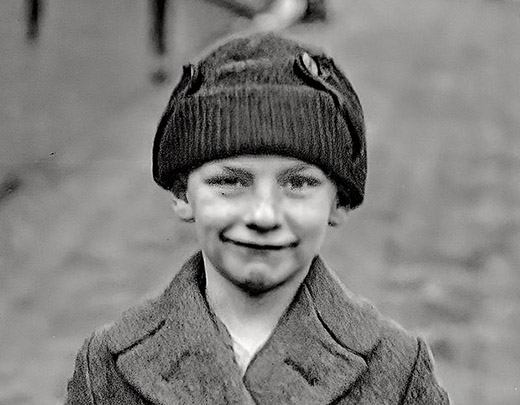
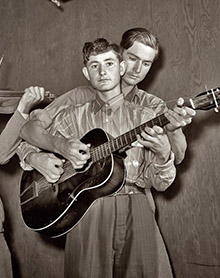
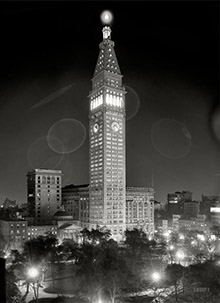
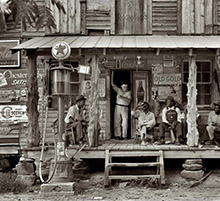
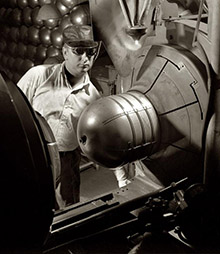
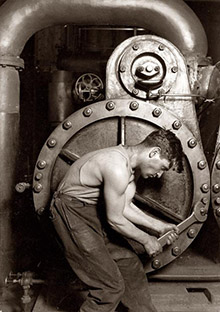

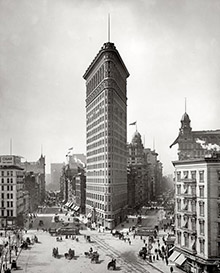



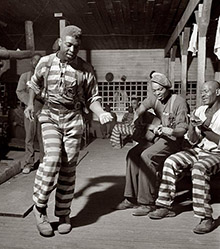
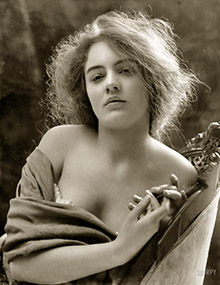
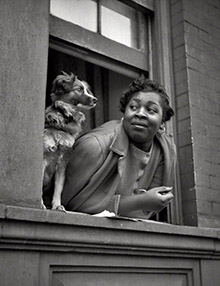

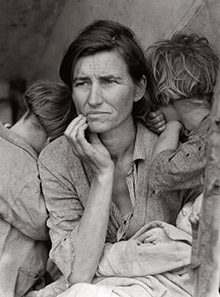

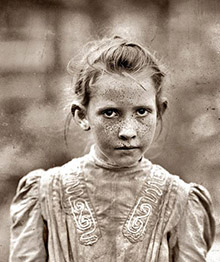
On Shorpy:
Today’s Top 5